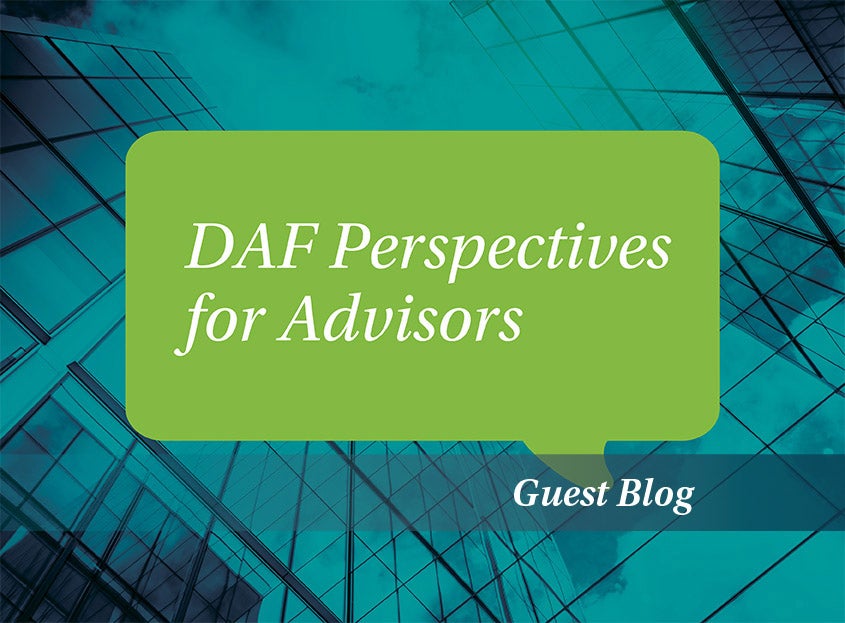Donor Advised Funds and the Family Office – a Practitioner’s View

We see clients at all stages of their giving and in many different circumstances. Some clients sit on the board of multi-generation family foundations; others are just getting started with ‘giving back’ through philanthropy.
Families served by family offices are no different from others when it comes to options for giving. We advise such families as they create private charitable foundations, donate to donor-advised funds (DAFs) and/or community foundations and make direct gifts to charities. Some of the families we work with combine these options. Family offices often provide administrative support that assist with this, such as liaising with advisers on formation, handling the compliance of an existing family foundation or maintaining records of direct gifts made by family members, and liaising with DAF providers.
Where the family office helps to administer a family charity, care needs to be taken with any plan to share resources (e.g., salaries/overheads). Jurisdictions differ on the level of regulation, but families should expect strict rules preventing the charity from subsidising the non-charitable entity. This is a situation that requires a degree of formality of arrangements and some families may prefer to avoid this complexity altogether.
There are a great variety of skills in-house at family offices, and many families task an existing family office employee or team with helping to manage the family philanthropy. Apart from the complexities of resource sharing, this can work as long as all are clear about the actual skills and capabilities of the staff. A family will not have the benefit of specialist philanthropy advice simply by tasking an existing administrative or investment staffer with reading a few online resources.
A family we worked with in the UK created a family office after an entrepreneurial business was sold. The parents wanted to create a programme of family philanthropy that would allow them to come together with the kids around giving. They assumed a foundation was needed. However, the family was surprised with the complexity required to share resources and have the foundation bear its share of family office costs. Ultimately the best solution was a DAF set up in the family name with regular family meetings to consider grant recommendations. A family office staffer was named as an additional adviser on the DAF. This outcome is both efficient from a tax perspective and achieves the family’s desired simplicity while creating a sort of ‘virtual foundation’ through the regular meetings.
Another family we work with has family office staff help with foundation administration and compliance. The foundation focuses on children, but the principal donor is also an arts aficionado. The foundation funds children’s arts education, but major gifts to the arts are made separately through a DAF, and done anonymously so as not to divert attention from the foundation’s work. The family office helps with liaison with our firm, with the DAF provider, and an external philanthropy adviser who has helped to develop the family’s philanthropic vision. The family experiences the family office staff as a single point of holistic support on giving, even though in reality there is a foundation with one focus, a DAF to accommodate another focus, and multiple relationships with third parties going into that experience.
It is also important to set responsibilities clearly and sensibly to ensure compliance and avoid confusion. In one final example, we were brought in to rectify some noncompliance that was ultimately down to inexperience; a family assumed a family office administrator should be able to “learn the ropes” of foundation compliance without any relevant experience or training. Compliance deadlines were missed and with no one organising meetings, the foundation fell behind in distributions. With some training, or the support of experienced advisers, this could have been very easily avoided.
Overall, family offices can be a great source of trusted support as families engage in philanthropy. Care should be taken to get the approach right, and in many cases a DAF can provide a great solution for all or part of the family giving.
NPT UK does not provide legal or tax advice. This blog post is for informational purposes only and is not intended to be, and shall not be relied upon as, legal or tax advice. The applicability of information contained here may vary depending on individual circumstances.


